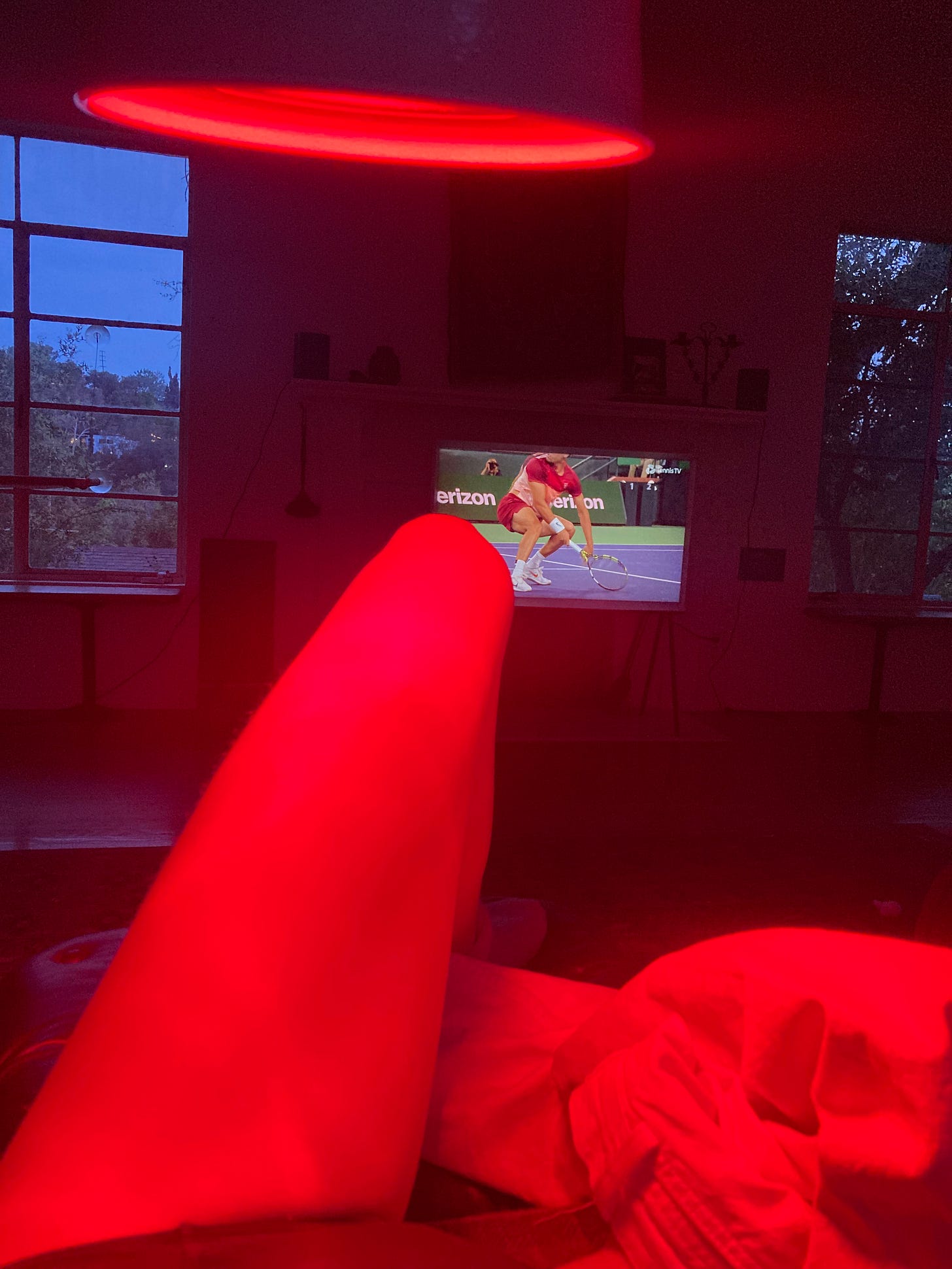#47: Nora MacLeod, L.Ac
"You donʼt need grand ambitions to have a meaningful impact on others or to stumble upon self-discovery."
Today’s guest is Nora (@nora_macleod), an acupuncturist and integrative practitioner with a background in the textile arts (aptly, her studio is named Tapestry). If you’re in LA, book a visit with her here.
#47: Nora MacLeod
Leo/Gemini/Libra
Los Angeles, California
What does health, or being healthy, mean to you?
Free and easy movement — of the body, mind, digestion, fluids, blood, lymph, breath. A robust seasonal appetite. And the ability to sit silently alone.
Was there a moment when you became more aware of your health, or your relationship to it changed?
Sophomore year of college I became very ill. I was in constant pain. I became a flake. Tired, fearful of food and drink, terribly cold. I dropped a few classes and travelled home via bus and train each weekend for some solace and to visit some new specialist. I watched reruns of Frasier at three in the morning, sleepless due to constant discomfort. A year later I had an effectively useless diagnosis with an idiopathic pathogenesis, no cure or reliable course of treatment. I was prescribed a $400 tablet off-label. I tried the sample I was given on my way out the door of the urologist Iʼd waited four months to see; it didnʼt do anything for my pain, but it turned my urine a deep and clear blue. I couldnʼt have afforded to fill a prescription even if it had worked. In retrospect, the cause of my illness was actually, originally, iatrogenic. I'd consistently sought out care from the medical establishment but the treatment I received made me more sick, doomed.
Nearly a decade after that, after several short lived bouts of remission achieved through diet and guided by my intuition, my boyfriend could see my deterioration and made me an appointment with an acupuncturist. Four months on, I experienced no symptoms of any kind. I have been in remission ever since. This experience combined with previous work in medical research and a pre-med post-bacc inspired me to study acupuncture and to pursue a path of service.
How would you describe your current lifestyle?
Unambitious. Stagnation is the root of pathology, but it must not be confused with unambitiousness; rather, I move at a pace that allows me the opportunity to better understand myself without distraction or expectation. Simple, routine, unhurried. You donʼt need grand ambitions to have a meaningful impact on others or to stumble upon self-discovery. I prioritize reading, writing, seeing patients at my home studio, sharing meals with friends, and playing tennis.
How do you start and end your days?
By 10:30am I feel satisfied with my day, nothing can mar it. I used to sleep late, but when I moved to Los Angeles five years ago I leaned into the time change and never looked back. I wake naturally between 5:20 and 5:40 am. I am so stupid happy in the morning that I usually sing and dance my way to the kitchen. I feed my kitten. I drink bone broth, write long-hand, drink butter tea, pray, read, meditate, play tennis, dry brush, shower, eat a protein and fat-rich breakfast. I supplement with Vitamin D, NAC, hawthorn, colostrum, and I cycle Chinese herbal formulas with my hormonal phases. I lock myself out of most apps on my phone from 9:30pm until 9:30am but I LOVE waking to find text messages and will shamelessly text friends before 7am. On days that I donʼt play tennis I walk to my local cafe and tear into a pretzel bun while I walk the hilly neighborhood.
I write on my laptop, occasionally creating a chart so that I can track word counts for whichever project Iʼm working on. Once I hit a particular mark I can let it go, close the document, and carry that creative momentum on to other tasks of my day. Sometimes hitting the mark is painful, other days it is mindlessly easy, but I hesitate to rest on my own motivations because motivations come and go and disappear entirely. Routine is where I dwell.






